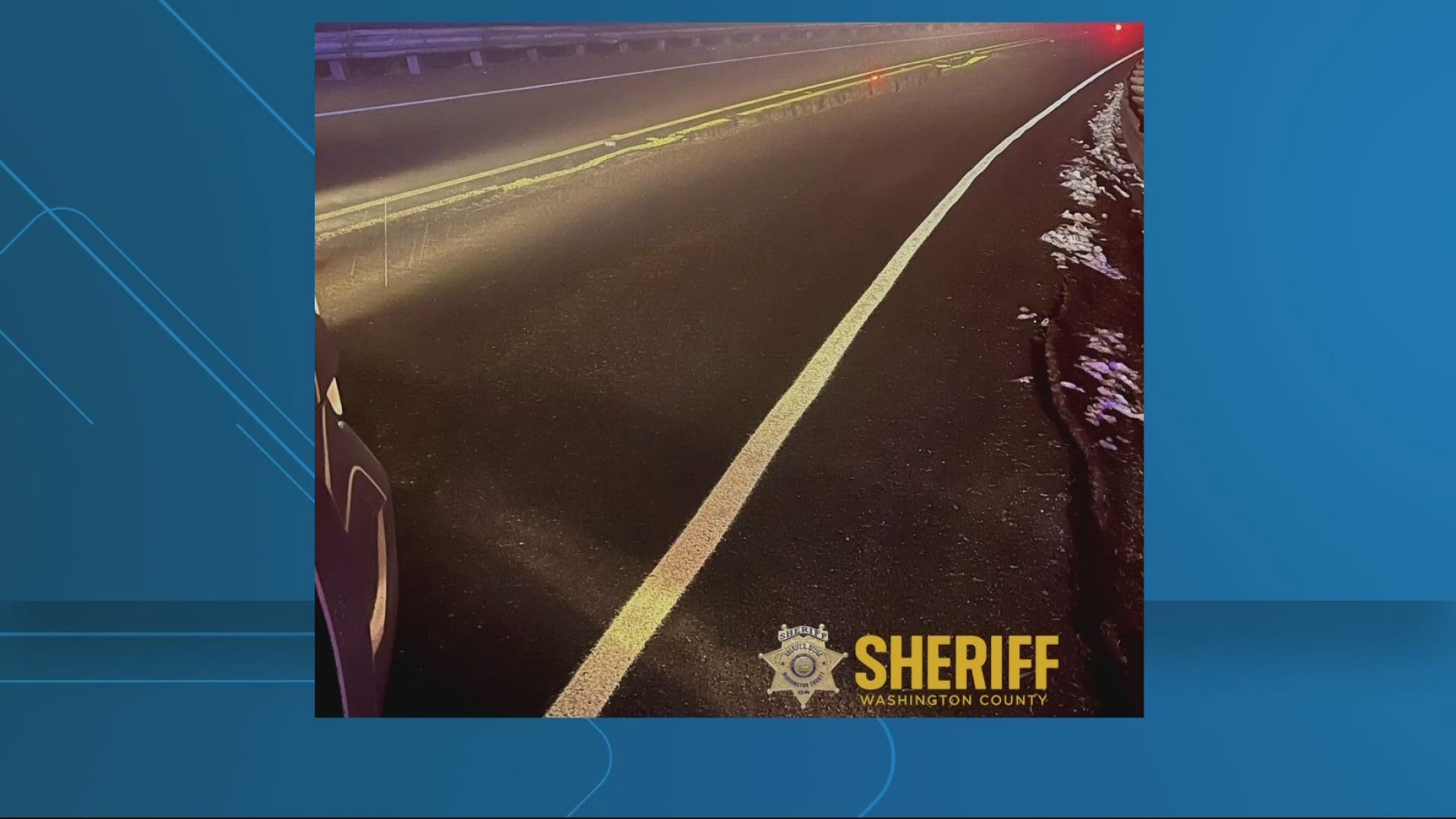SALEM, Ore. -- Without more investment in Oregon's bridges, they will suffer "significant deterioration" in the next two decades an Oregon Department of Transportation report released last week said.
Currently, 64 of Oregon's bridges are structurally deficient, with 14 a year expected to be added to the list.
That translates into economic problems: A loss of 100,000 jobs and $94 billion in production by 2035, according to ODOT. Jobs and money are lost due to rerouting traffic, delays and expensive construction.
To maintain Oregon's bridges in their current condition would require $240 million each year for 20 years. ODOT spokesman Tom Fuller said the state needs an additional $180 million a year to fix Oregon's bridges.
ODOT says 27 bridges need to be replaced each year. Currently, there's funding for three replacements a year.
Senate President Peter Courtney, one of the state's most senior lawmakers, has renewed the call for the legislature to pass a meaningful transportation funding bill in 2017. Talks to fund such a bill in 2015 failed.
"If the Legislature doesn't act, our bridges and our economy will collapse," Courtney said in a press release Thursday.
Courtney's call for action did not come without criticism; Senate Republicans said a bill should be passed in 2016, not 2017. He said in an earlier release that a bill in 2016 would be preferable, but the topic is so politically controversial, there may not be support for it yet.
Report highlights issues statewide
More than half of Oregon's bridges were built before 1970, and many of those bridges require replacement. Because those bridges were designed for less traffic, repairing them is only a temporary solution, and defects like holes in the bridge's road surface or instability during earthquakes will persist until bridges are replaced.
Currently, less than 1 percent of Oregon's bridges receive preservation work each year. Bridges are supposed to receive repairs every 30 to 50 years, but with current funding, a bridge in Oregon can only be repaired once every 100 years.
"At the current rate of replacement — about 0.1 percent per year — state highway bridges will have to last more than 900 years on average," the report said.
Still, there have been recent improvements for Oregon's bridges. More than $1.3 billion was spent within the last decade to repair 122 bridges and replace 149.
"The improvement trend, however, is not expected to continue in the long term," the ODOT report said.
Current funding for bridge improvements is lower than at any point since the 1990s.
"Oregon needs significant increased investment to maintain the service level of our aging bridges and to get ahead of the wave of pending deterioration," the report said.
More money needed for bridges
One place to get that increased investment is in the Legislature, which will convene for a short session in February. Transportation was one of the defining issues of the 2015 session, though a compromise on a bill couldn't be reached.
"A major transportation plan must be our top priority in the 2017 session. Our safety depends on it. Our economy depends on it. Our future depends on it," Sen. Courtney said in a press release.
Oregon Senate Republicans were quick to criticize Courtney's ask to wait until 2017 to pass a transportation bill. A press release from the Oregon Senate Republicans said support for a transportation package exists if a compromise can be made to repeal Oregon's clean fuels law, which was extended in the 2015 session.
"With the repeal of the Low Carbon Fuel Standard, we have the votes in the Senate to pass a bipartisan transportation package now," Senate Minority Leader Ted Ferrioli said in the press release.
The 2016 session isn't until February, and in the meantime, Courtney has a message for incumbent lawmakers and those running for office in 2016:
"If you want to be in the Legislature; if you want to be governor; if you want to be secretary of state or treasurer; you need to be committed to passing a major transportation plan," he said.
"Everyone needs to know what they are signing up for. Transportation funding will be the defining issue of the 2017 session."


